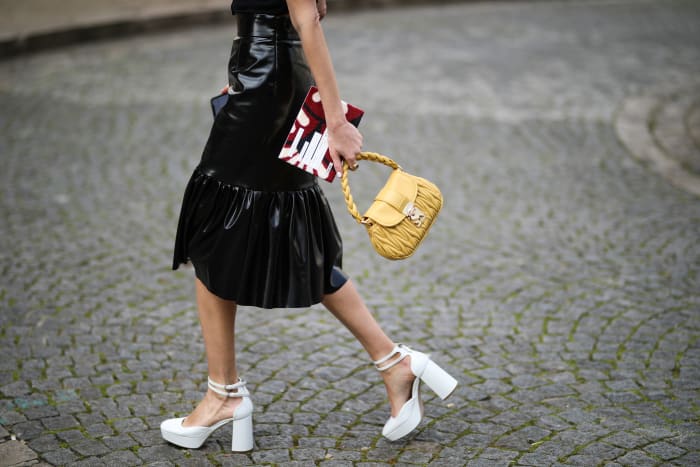Businesses of all kinds are being affected by the current economic slowdown, and influencers — who might seem like individual people, but are often really the faces of small businesses that include many other employees as well — are no exception. As retailers nix their affiliate programs and see their marketing budgets shrink, they’re passing along some of that economic hardship to the influencers they’d usually work with.
But this doesn’t signal the end of the influencer economy, at least according to influencer agent Jennifer Powell. Powell, who works with Danielle Bernstein of @weworewhat, Tessa Barton of @tezza and Julie Sariñana of @sincerelyjules, says that even as micro-influencer budgets are being eliminated, brands are still looking to work with macro-influencers who are “proven converters.”
Powell shared her perspective during a webinar hosted by Vogue Business on Friday morning.
“A lot of our big branding moments have gone away… It obviously is impactful for the bottom line of their businesses,” Powell said of her clients. Still, she asserts, this is “absolutely not the end of influencer marketing.”
Instead, she sees it as “a survival of the fittest moment — some will rise and some will fall away.” To weather the current climate, Powell is advising her clients to use crowdsourcing to take a “temperature check” that can help them gauge what kind of content their audiences want right now. Teaching their followers new skills, passing along valuable information and creating opportunities for followers to give back have all been successful strategies so far, she says.
But Powell also represents CGI model Shudu, and that’s where things get really interesting. While real influencers are limited by lockdown orders, CGI avatars like Shudu are still as available as ever to create editorial imagery that’s not confined to the living room. What this could mean for the future, Powell says, is that virtual influencers or models like Shudu could become more prevalent.
Even more intriguingly, Powell wondered aloud about a world in which influencers and celebrities actually have avatars who look like them that could appear in editorial so they don’t have to travel so much and could even “lower their carbon footprints.”
Is this actually where we’re headed? Only time will tell. But considering how much people love dressing their own avatars in games like Animal Crossing and how popular digital influencers like Lil Miquela have become, it’s not a hard future to imagine.

